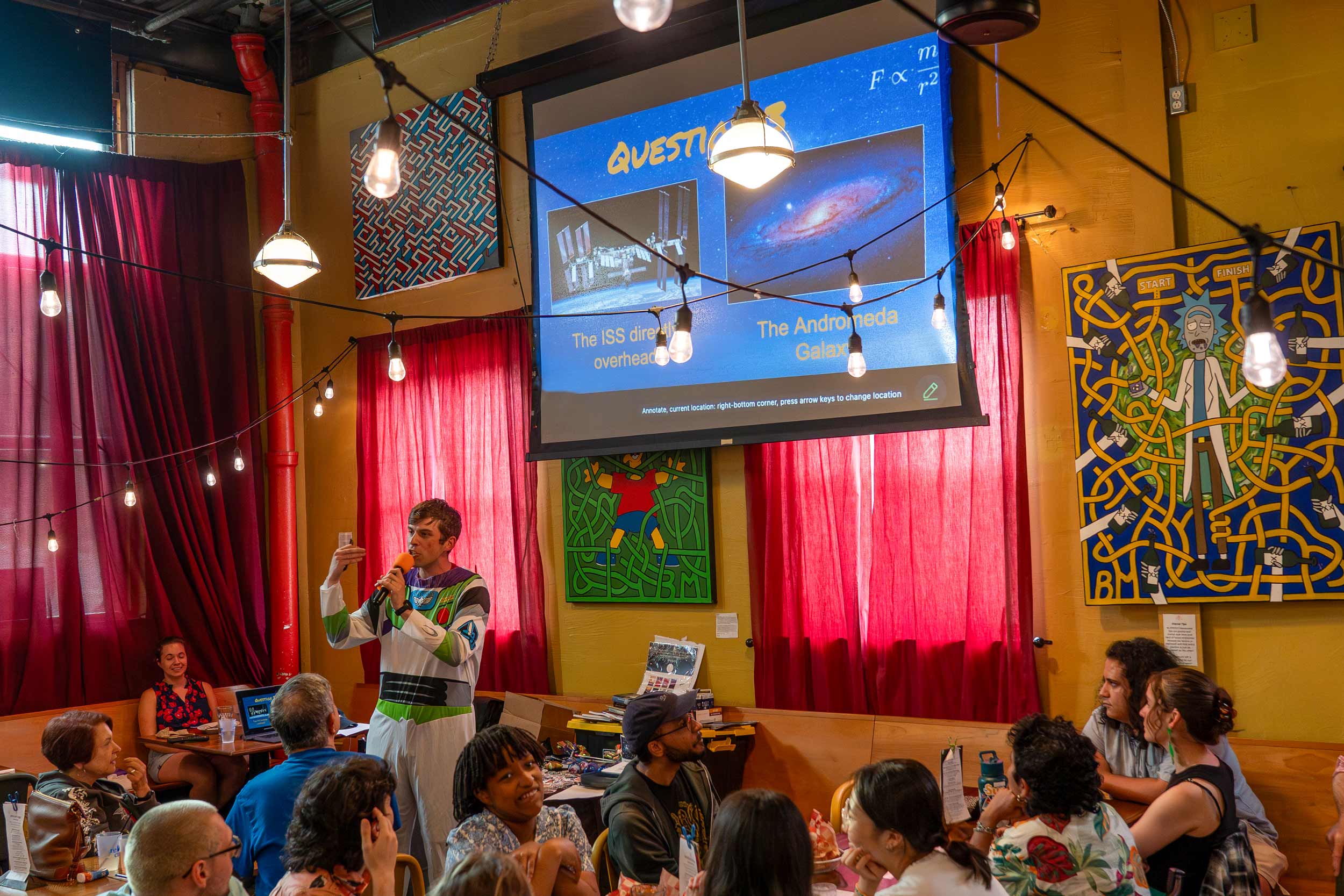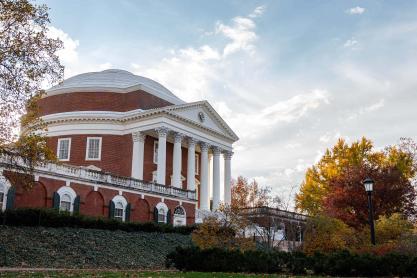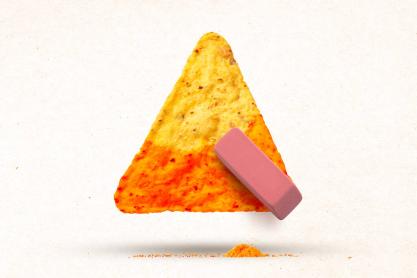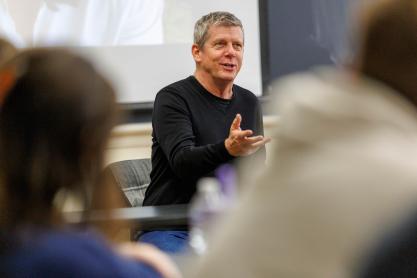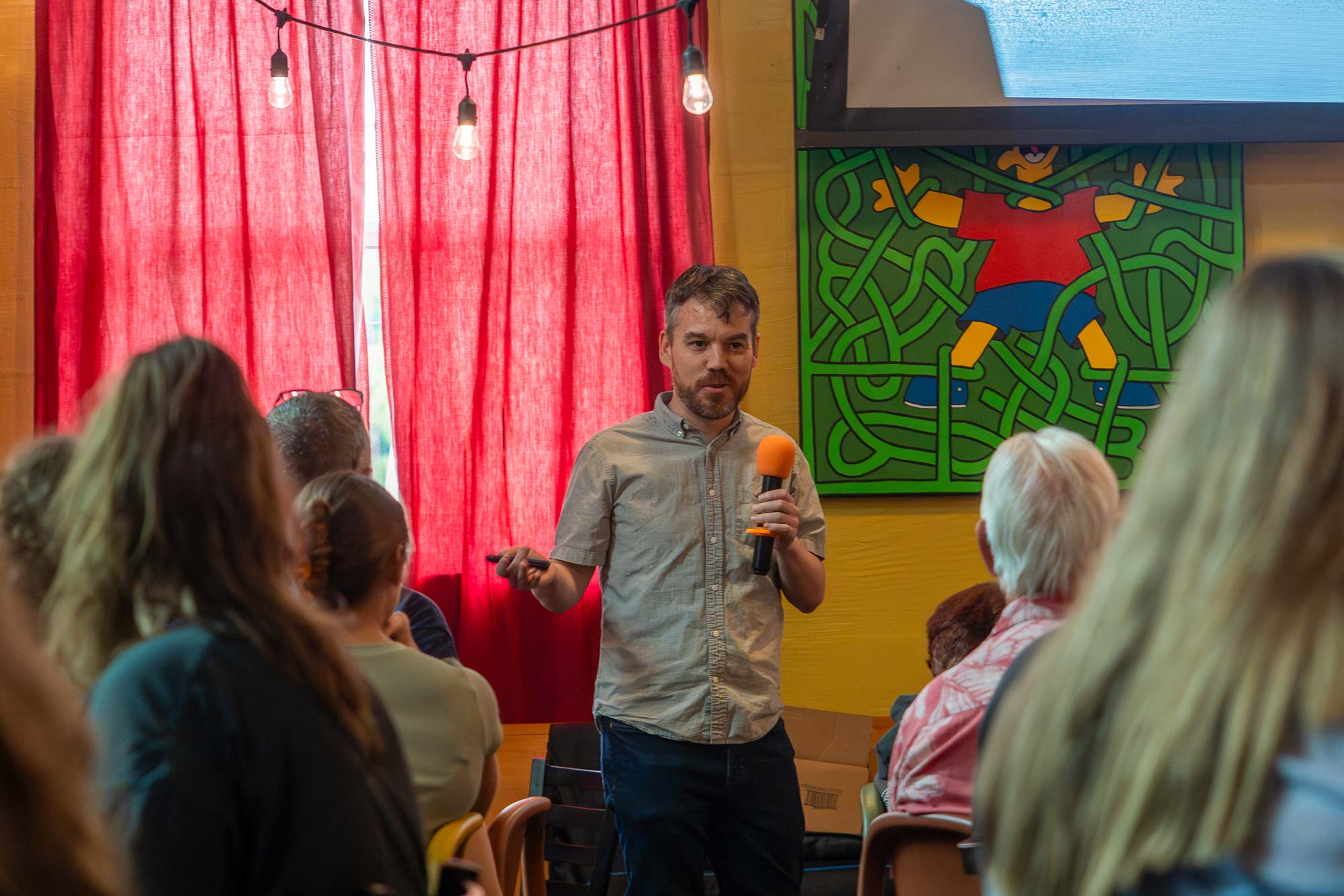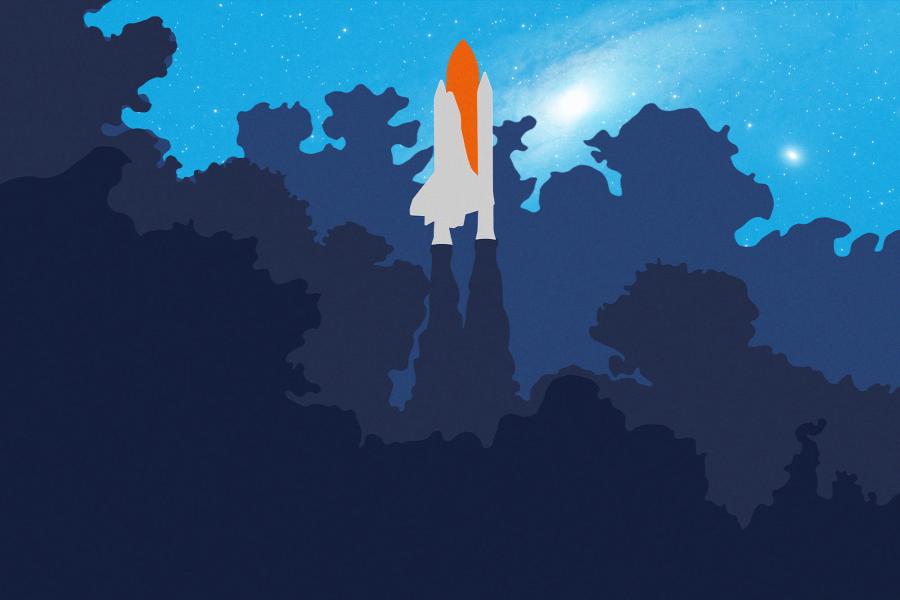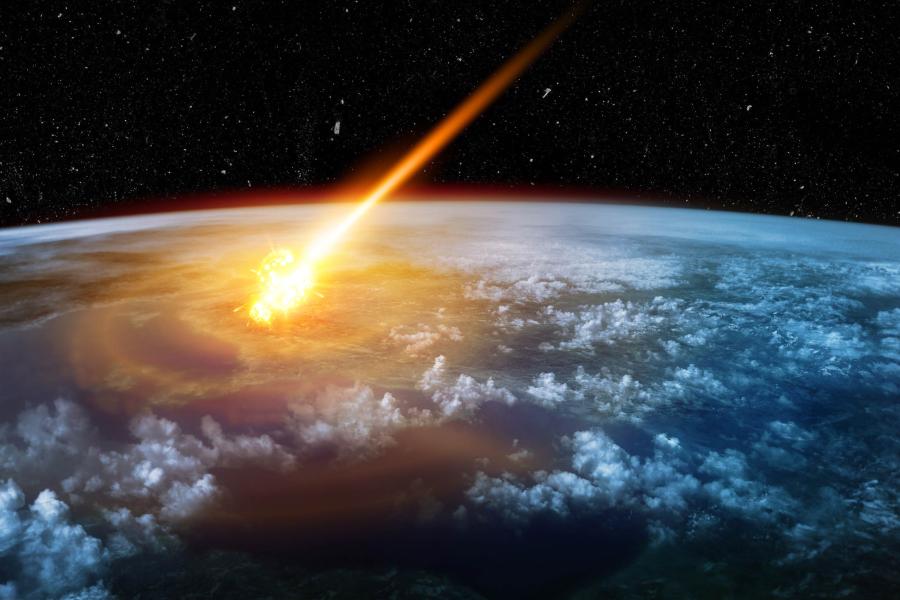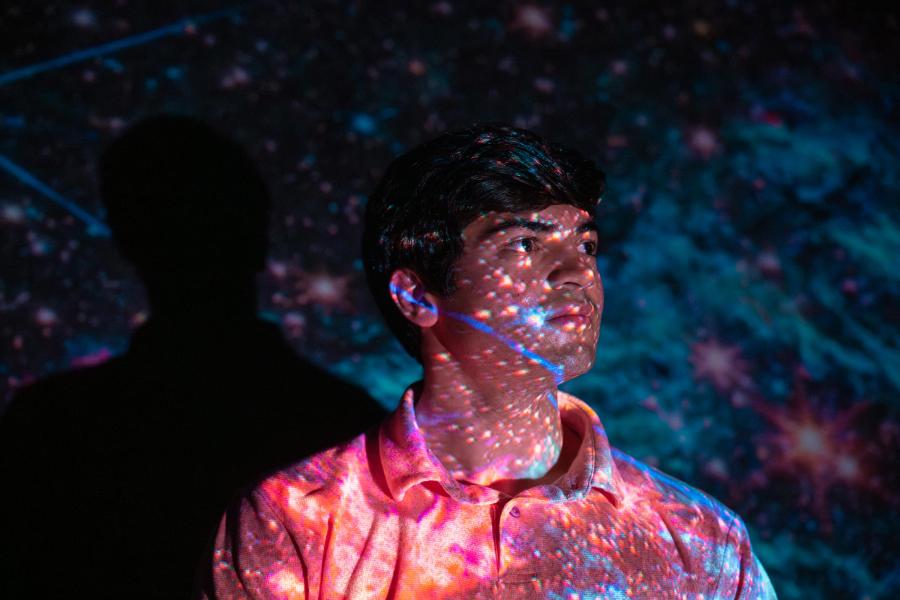The banner over the bar stated “Science Is Real,” and on a recent Monday night, the science was very real.
“Astronomy on Tap Charlottesville,” which has brought the wonders of the universe to non-academic settings for the past seven years, recently staged its bimonthly public outreach at the Firefly restaurant. Master of ceremonies Matt Pryal, an assistant professor of astronomy at the University of Virginia, directed the evening dressed as “Buzzed Lightyear,” asking space-related trivia questions, introducing speakers and keeping the show on track.
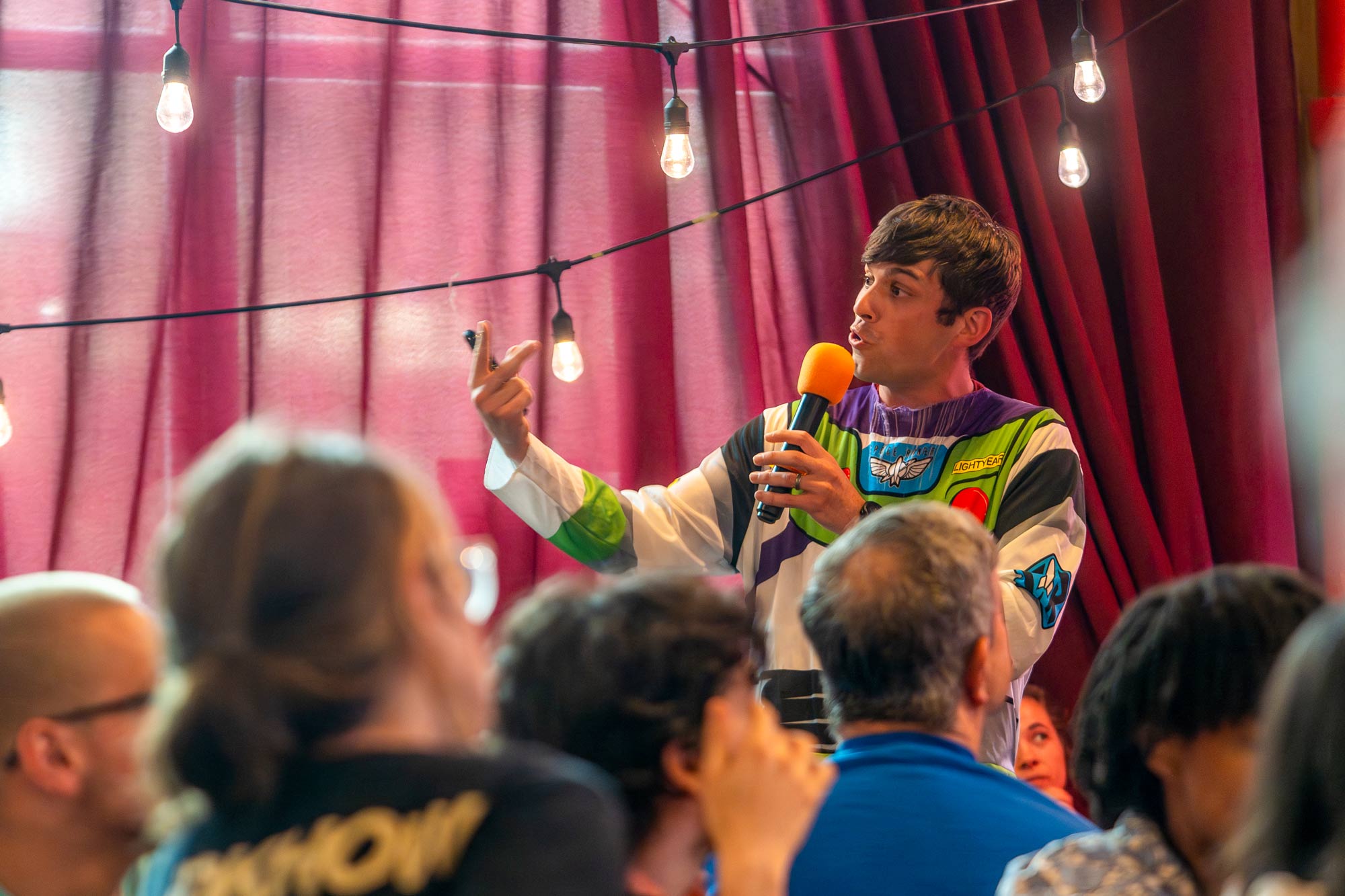
UVA astronomer Matt Pryal, dressed in his “Buzzed Lightyear” costume, hosts an Astronomy on Tap Charlottesville session at the Firefly restaurant. (Photo by Erin Edgerton, University Communications)
He was not alone. Associate astronomy professor Shane Davis expounded on black holes, while graduate student Jaya Nagarajan-Swenson spoke on merging galaxies, both using a large monitor to display charts, graphs and illustrations.
The astronomers set up in the corner of a high-ceilinged room with exposed girders. Between 60 and 70 people, some with children, chatted in groups sitting at long tables, with a few stragglers clustered at tables near the bar. The monitor, connected to screens over the bar, assisted the speakers with their talks and drew other patrons into the festivities.
Pryal opened the night with trivia about gravity, hinting at Davis’ topic of “Why Black Holes Are Messy Eaters.” Spoiler alert: Black holes have a gravitational pull strong enough to prevent light from escaping.
After each talk, the scientists fielded questions and provided more trivia.
